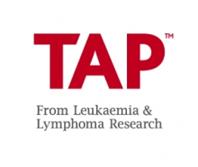Leukaemia and Lymphoma Research have written an article about the recognition of their innovative clinical trials programme in the new government report.
"In the report Strategy for UK Life Sciences One Year On, the government has acknowledged the value of the Trials Acceleration Programme (TAP) which Leukaemia & Lymphoma Research launched earlier this year.
The TAP programme enables patients to have greater access to new treatments and links 13 leading hospitals across the UK.
The programme is designed to shorten the time it takes to get new clinical trials up and running, as well as completed. Early results indicate a significant reduction not only in time scales but also in costs.
If successful, TAP will make the UK an attractive place for international pharmaceutical companies to undertake trials. This would increase patients’ access to new treatments, add financial benefit and create jobs.
Professor Chris Bunce, Research Director at Leukaemia & Lymphoma Research, said he is delighted that the government is showing a continued commitment to life sciences, and improved clinical trials:
“The UK is leading the world in the development of treatments for cancer, however, its inability to rapidly translate scientific findings into early phase clinical trials remains a major hurdle. Clinical trials, particularly for blood cancer, are difficult to set up and it can take anything from four to ten years to complete a trial and analyse the results. TAP is designed to tackle these problems
“We are delighted that the government is committed to improving access to clinical trials. This is particularly important given the squeeze on NHS budgets and increased demand for new treatments. The TAP programme is benefiting patients while using NHS resources more efficiently, and is also attracting investment from the global pharmaceutical industry.
“Our TAP model brings together the NHS, the pharmaceutical industry, and charities, and we are confident that with adequate investment it could be extended to help find new treatments for other diseases.”" leukaemialymphomaresearch.o...
You can read more about the full report from the NHS National Institute for Health Research:
STRATEGY FOR UK LIFE SCIENCES: ONE YEAR ON
nihr.ac.uk/about/Pages/Stra...
"The Strategy sets out the Government's vision of an integrated healthcare economy in which the different elements of the UK sector (fundamental research, clinical research, industry and the NHS) are able to work much more closely together to accelerate healthcare innovation for the benefit of patients and to ensure the UK remains a location of choice for investment in an increasingly competitive and globalised health life sciences sector."
The Government published the Strategy for UK Life Sciences: One Year On, report on 10 December 2012: gov.uk/government/news/life... Update on progress implementing measures in the 'Strategy for UK life sciences' gov.uk/government/publicati...
PROGRESS
The report shows that the UK has generated more than £1 billion on industry and private sector investment within 12 months. This includes:
£500 million from GSK to build its first new manufacturing plant in almost 40 years at Ulverston in Cumbria and invest more in its two sites at Montrose and Irvine in Scotland as a direct response to the introduction of the Patent Box
£25 million leveraged in from the private sector to bridge the ‘Valley of Death’ adding to a government commitment of £49 million to 64 projects through the Biomedical Catalyst
£294 million through the UK Research Partnership Investment Fund (UK RPIF) from businesses and charities.
Real progress has been made working closely with companies across the sector to ensure the measures in the strategy are making a real difference to their work and their decisions to invest in and remain in the UK.
This includes investing £1 billion per annum through the National Institute for Health Research, which includes £500 million in our translational research infrastructure in the NHS to boost networks between academia, industry and the NHS.
REVOLUTIONISING THE FIGHT AGAINST CANCER
"David Cameron also announced that the UK will be the first country in the world to introduce high-tech DNA mapping for cancer patients and those with rare diseases, within the NHS. Up to 100,000 patients over three to five years will have their whole genome – their personal DNA code –sequenced.
The genome profile will give doctors a new, advanced understanding of a patient’s genetic make-up, condition and treatment needs, ensuring they have access to the right drugs and personalised care far quicker than ever before.
It will also help to develop life-saving new drugs, treatments and scientific breakthroughs, which experts predict could significantly reduce the number of premature deaths from cancer within a generation.
The government has earmarked £100 million:
to train a new generation of British genetic scientists to lead on the development of new drugs, treatments and cures, building the UK as the world leader in the field. And train the wider healthcare community in harnessing this technology
to pump-prime DNA sequencing for cancer and rare inherited diseases
to build the NHS data infrastructure to ensure that this new technology leads to better care for patients"
You can read the full article from No10:: DNA tests to revolutionise cancer treatment
and help 100.000 NHS patients number10.gov.uk/news/dna-te...
"We will soon be able to sequence a human genome for less than £1,000, and the cost is likely fall further. As a result, experts believe a revolution in the way healthcare is delivered is approaching, with personalised medicines and individualised treatments becoming available for the first time.
The sequencing of 100,000 patients’ genomes in centres capable of sequencing DNA at speed in the UK will further drive down the cost, delivering value for money in comparison to the current NHS tests for cancer and rare diseases that provide a more limited snapshot of information."
